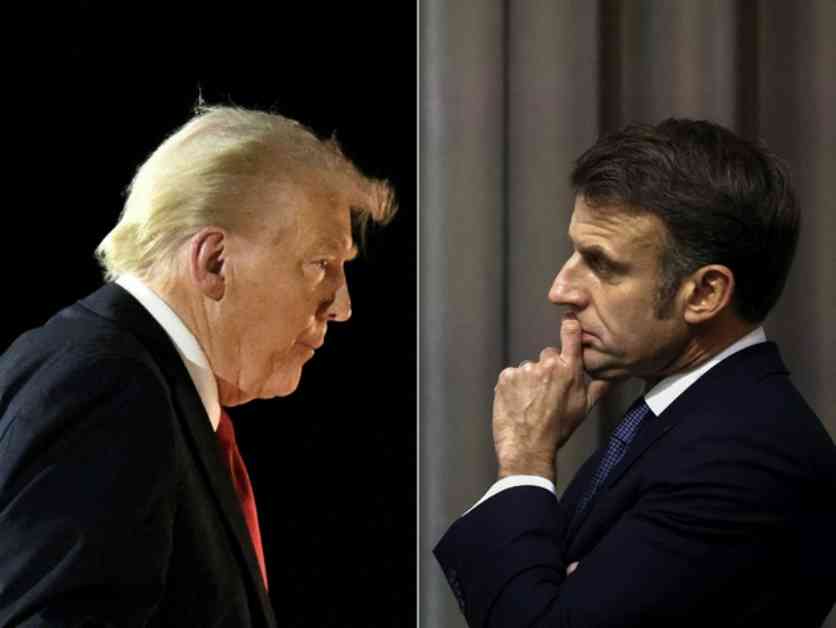French President Emmanuel Macron and his allies have taken a united stand on Ukraine, emphasizing the importance of Ukraine’s rights and European security in any potential resolution to the ongoing conflict. Macron’s recent gathering with leaders from 19 countries, including Canada, highlighted a shared desire for lasting peace in Ukraine. This comes amidst surprising statements from US President Donald Trump, expressing readiness to engage in diplomacy with Russian President Vladimir Putin, a move that has left the European Union taken aback.
France and Allies United on Ukraine
Macron’s firm stance on Ukraine was evident in his recent meeting, where he stressed the vital role of Ukraine in any peace process and the necessity of robust guarantees to ensure a lasting solution. The leaders who participated in the video conference emphasized the importance of respecting Ukraine’s rights and addressing European security concerns. Macron underlined his commitment to supporting Ukraine and upholding peace and security in Europe, echoing sentiments shared by many European nations.
In response to the shifting geopolitical landscape, Macron is set to visit Washington early next week to meet with President Trump. This meeting holds significant implications for the future trajectory of international relations, especially in the context of the Ukraine crisis. Ukraine’s President Volodymyr Zelensky is also engaging with US envoy Keith Kellogg, signaling a desire for constructive dialogue despite recent tensions.
European Response to Existential Threat
Macron’s recent actions underscore the gravity of the situation, with Russia’s actions being labeled as an “existential threat” to Europe. The urgent need for increased defense and security spending across Europe was a key point of discussion among leaders, reflecting a shared commitment to bolstering collective security measures. Macron’s proactive approach to coordinating European responses aligns with the broader objective of safeguarding European interests in the face of escalating tensions.
The collective resolve exhibited by France and its allies in responding to the Ukraine crisis highlights the importance of international cooperation in addressing complex geopolitical challenges. Macron’s willingness to consider deploying limited forces to Ukraine underscores a nuanced approach to conflict resolution, balancing the imperative of intervention with the need to avoid further escalation.
As the situation continues to evolve, Macron’s emphasis on the European Union’s role in providing essential guarantees for lasting peace in Ukraine underscores the ongoing diplomatic efforts to mitigate the crisis. The imposition of new sanctions on Russia by EU countries signals a unified response to Russian aggression, underscoring the determination to uphold international norms and protect the security of European nations.
In conclusion, Macron’s leadership in navigating the complexities of the Ukraine conflict reflects a commitment to upholding democratic values and promoting stability in the region. The coordinated efforts of France and its allies underscore the resilience of transatlantic partnerships in the face of evolving geopolitical challenges. As the international community grapples with the ramifications of the Ukraine crisis, Macron’s strategic diplomacy offers a roadmap for multilateral engagement and conflict resolution in a rapidly changing global landscape.

















